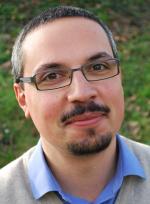Feola, Giuseppe
I am Lecturer in Environment and Development in the Department of Geography and Environmental Science at the University of Reading, where I am also affiliated with the Walker Institute for Climate System Research. Before joining the University of Reading, I was postdoc at the Potsdam Institute for Climate Impact Research and teaching and research assistant at the Department of Geography of the University of Zurich. Before undertaking the PhD, I also worked outside academia mainly implementing Environmental Management Systems (EMAS, ISO14001) and Sustainability Reporting both in the private sector and local authorities. I hold a BSc in Sociology (2002) from the University of Milan-Bicocca, a MSc in Environmental Economics and Management (2003) from Bocconi University in Milan and a PhD in Geography (2010) from the University of Zurich, all with distinction. I am also a trained Environmental Management Systems Auditor.
As an environmental social scientist, I am interested in how coupled human and natural systems (CHANS) dynamically interact through human actions, and how these interactions can be steered towards sustainable pathways. My use-inspired basic research has three main themes: models of human actors in CHANS, theories of social-ecological change, and integrated sustainability assessment. I have addressed these themes through research on smallholding farmers in the Colombian Andes, where I developed dynamic behavioural models of pesticide use as learning platforms for policy-making to minimise health and environmental risks. Current research looks at individual and institutional adaptation of Colombian smallholders to climate change, and at grassroots movements to see what factors hinder or facilitate local communities achieve a transition toward sustainability. In my research I adopt an inter- and trans-disciplinary approach, and collaborate with natural and environmental scientists. I integrate different research methods, among which survey research, narratives analysis, indicators, statistical and simulation modelling.







